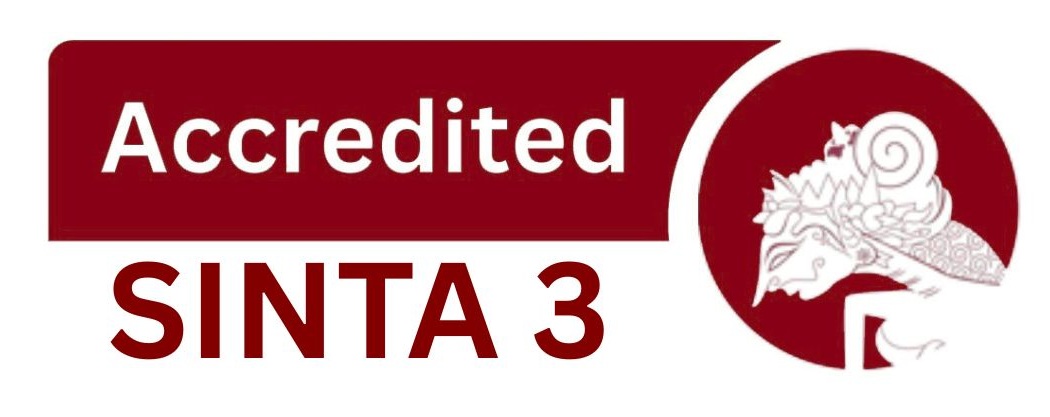ENHANCING SPEAKING SKILL THROUGH WASTE OF MACHINE’S SPARE PARTS AS THE LEARNING MEDIA
DOI:
https://doi.org/10.22460/eltin.v9i1.p30-38Keywords:
waste of machine’s spare part, speaking skillAbstract
The study investigated whether the machine's spare parts' waste impacts teaching, especially enhancement the students' speaking skills, and describes how the waste of machine's spare parts influences the students' speaking skills. The study explored the waste of machine's spare parts, which has a negative impact on the environment, to create a learning media to enhance speaking skills to the students of Politeknik Negeri Tanah Laut, Mechanical Engineering majoring. Action research was implemented in two cycles, and the data were collected through observation, questionnaire, and speaking assessment. Pre-Test Testing, Cycle I Test, and Cycle II Test use the same speaking test used waste of the machine's spare parts by students. The data showed that the mean score of the Pre-test was 65,45, 70,1 in Cycle I, and 82 in Cycle II. Therefore, it can be concluded that the use of machine’s spart waste can improve students’ speaking skill. In addition, the finding also showed that it gives enhancement to students' participation and confidence in speaking English.
Keywords: waste of machine’s spare part, speaking skill, learning media
References
Bashir, M., Azeem, M., & Dogar, A. H. (2011). Factor effecting students’ English speaking skills. British Journal of Arts and Social Sciences., 2(1), 34–50.
Blackwell, W., Wasko, J., Murdock, G., Sousa, H., Wilkins, K. G., Tufte, T., & Obregon, R. (2020). The Handbook of Media Education Research. In D. Frauâ€Meigs, S. Kotilainen, M. Pathakâ€Shelat, M. Hoechsmann, & S. R. Poyntz (Eds.), The Handbook of Media Education Research. Wiley. https://doi.org/10.1002/9781119166900
Brown, A. (2003). Interviewer variation and the co-construction of speaking proficiency. Language Testing. https://doi.org/10.1191/0265532203lt242oa
Buckingham, D. (2003). Media Education: Literacy, Learning and Contemporary Culture - David Buckingham - Google Buku. Polity Press.
Creativity in Language Teaching: Perspectives from Research and Practice - Google Buku. (n.d.).
Erfiani, Y. P. F. (2017). Improving Second Semester Students’ Speaking Ability Through Storytelling Learning Modelat English Study Program of Timor University (A Classroom Action Research Method). Metathesis: Journal of English Language, Literature, and Teaching, 1(2). https://doi.org/10.31002/METATHESIS.V1I2.472
Hamidova, S., & Ganiyeva, H. (2020). Developing Speaking Skills. Ðрхив Ðаучных Публикаций JSPI.
Kemmis, S., McTaggart, R., & Nixon, R. (2014). The action research planner: Doing critical participatory action research. In The Action Research Planner: Doing Critical Participatory Action Research. https://doi.org/10.1007/978-981-4560-67-2
Leoanak, S. P., & Amalo, B. K. (2018). TRASH to TREASURE: UTILIZING WASTE MATERIALS AS A MEDIUM of ENGLISH INSTRUCTION. ELT Echo : The Journal of English Language Teaching in Foreign Language Context, 3(1), 22-33. https://doi.org/10.24235/eltecho.v3i1.2590
Maulany, D. B. (2013). The use of project-based learning in improving the studentsspeaking skill (a classroom action research at one of primary schools in Bandung). Journal of English and Education., 1(1), 30–42.
McNiff, J., & Whitehead, J. (2012). Action Research for Teachers. In Action Research for Teachers. https://doi.org/10.4324/9780203462393
Muttaqin, M. Z. (2019). Enhancing Speaking Skills in the Material of Remedial Learning Through Community Language Learning in SMP Multazam Semarang. Vision: Journal for Language and Foreign Language Learning, 8(1), 1-10. https://doi.org/10.21580/vjv8i13266
Rachmania, R. (2018). Peer and Self-assessment for Learners in Higher Level of Education. Academic Journal Perspective : Education, Language, and Literature, 6(1), 1-9 https://doi.org/10.33603/perspective.v6i1.1085
PP No. 27 Tahun 2020 tentang Pengelolaan Sampah Spesifik [JDIH BPK RI], (2020).
Spratt, M., Pulverness, A., & Williams, M. (2011). The TKT Course Modules 1, 2 and 3. In The TKT Course Modules 1, 2 and 3. https://doi.org/10.1017/cbo9781139062398
Teaching Speaking: A Holistic Approach - Christine C. M. Goh, Anne Burns - Google Buku. (n.d.).
Tuan, N. H. ., & Mai, T. N. (2015). Factors affecting students’ speaking performance at Le Thanh Hien high school. AJER (Asian Journal of Educational Research, 3(2), 8–23.
Ulla, M. B. (2020). Students’ Speaking Motivation and their Perspectives on a Task-based Language Classroom: Pedagogical Implications. The Journal of Asia TEFL, 17(2), 681.
Usmonov, A. (2020). • iScience ÐКТУÐЛЬÐЫЕ ÐÐУЧÐЫЕ ИССЛЕДОВÐÐИЯ Ð’ СОВРЕМЕÐÐОМ МИРЕ ПереÑÑлав-Хмельницкий 2016. In Ðрхив Ðаучных Публикаций JSPI.
Utama, E. F. (2014). Methods of teaching English as a Foreign Language (TEFL): Traditional method, designer method, communicative approach, scientific approach. Era Pustaka.












